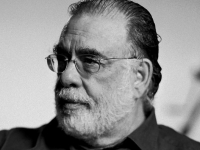Arts
Francis Ford Coppola wins the Princess of Asturias Prize of Arts
Considered a master of the seventh art
In this award they chose 31 candidates from 19 countries and is the first to be awarded to the eight named after the heir to the Crown of Spain, Princess Leonor. Precisely this year is the first time that awards are called “˜Princess of Asturias', after ascending to the throne last year the current King Philip IV of Spain, who previously held the title of Prince of Asturias who inherited his eldest daughter.
The jury of the Princess of Asturias Prize of Arts, chaired by businessman Jose Llado, presented the award to Francis Ford Coppola, who is considered one of the innovators of American cinema in the decade of the 70. At the aforementioned films Coppola has directed that we must add the film adaptation of Bram Stoker's “˜Dracula´ in 1992. Born on 7th April 1939 into an Italian-American family in Detroit (Michigan, USA), Francis Ford Coppola grew up in New York in a home with ties to music and the cinema.
His father, Carmine Coppola, was an instrumentalist and composer. His childhood was marked by polio, which kept him bedridden for over a year, but also by puppetry and editing family films in Super 8, which served as a both a distraction and a source of learning. He majored in Theater Arts at Hofstra College (New York) and studied film at the UCLA Film School, where he earned a Master in Fine Arts Degree with his thesis project “˜You´re a Big Boy Now´ (1966). His wide-ranging body of work, which includes films considered classics in cinema history, comprises more than 30 films as director, 27 as screenwriter and 74 as producer. In 1969, he created the American Zoetrope production company, which produced the early works of George Lucas.
Francis Ford Coppola is nowadays considered a master of the art of filmmaking. A visionary and innovator, Coppola has fully embraced the Wagnerian concept of the “total work of art“, in which nothing escapes the attentive scrutiny of the director and “his genuine resolve to make auteur films within the confines of the major studios“, in the opinion of specialists. His stance has sometimes clashed with the interests of the Hollywood industry, causing him both economic problems and difficulties when filming.
Francis Ford Coppola´s films have frequently been nominated for and distinguished with the film industry´s most prestigious international awards. Besides the Oscars he has won, his work as a director, scriptwriter and producer has been recognized by Golden Globes (USA), the Palme d´Or at Cannes (France), the BAFTA Awards (UK), the César Awards (France), the David di Donatello Awards (Italy) and the Golden Lion (Italy). In 2013, he was bestowed with the Praemium Imperiale Award (Japan).
As stated in the Statutes of the Foundation, the Princess of Asturias Awards are aimed at rewarding “the scientific, technical, cultural, social and humanitarian work carried out at an international level by individuals, institutions or groups of individuals or institutions.“ In keeping with these principles, the Princess of Asturias Award for the Arts shall be conferred on those “whose work in cinematography, theatre, dance, music, photography, painting, sculpture, architecture or any other form of artistic expression constitutes an outstanding contribution to the universal heritage of humanity.“
This year a total of thirty-one candidatures from Argentina, Australia, Cuba China, Denmark, Estonia, Germany, Hungary, Iceland, Iraq, Ireland, Israel, Italy, Mexico, Poland, Portugal, the United Kingdom, the United States and Spain ran for the award. Each of the Princess of Asturias Awards comprises a Joan Miró sculpture -representing and symbolizing the Awards““, a cash prize of 50,000 euros, a diploma and an insignia. The awards will be presented in October in the city of Oviedo, capital of the ancient Kingdom of Asturias and of the actual region same name, at a grand ceremony chaired by TM The King and Queen of Spain.
Liability for this article lies with the author, who also holds the copyright. Editorial content from USPA may be quoted on other websites as long as the quote comprises no more than 5% of the entire text, is marked as such and the source is named (via hyperlink).






